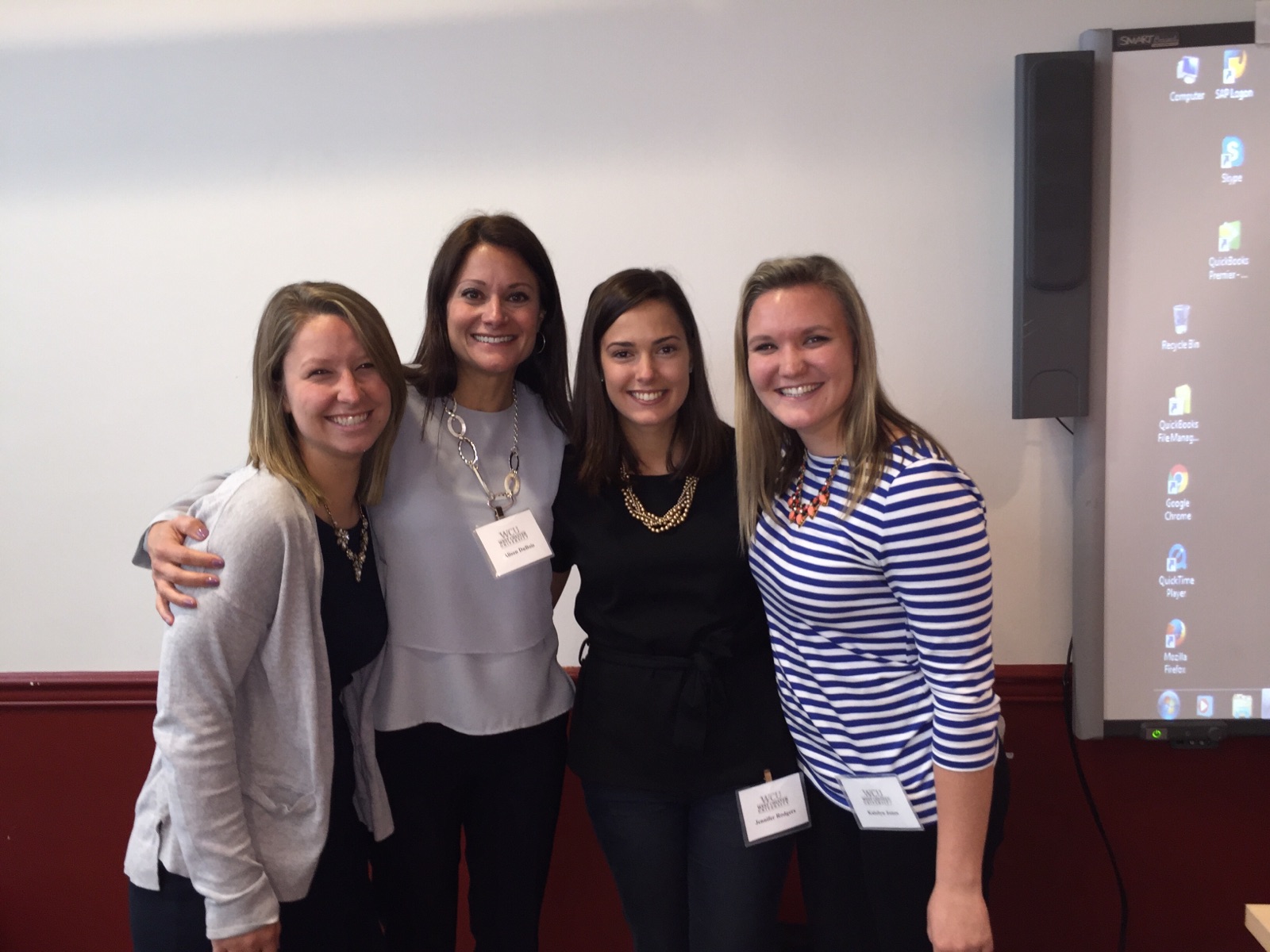News & Events
“The Cost of Caring: Developing Resiliency Skills in Pre-service Teachers”
Posted on Wednesday, May 11, 2016
 In April, members of Westminster College’s School of Education presented their research at the National Student Teaching and Supervision Conference held at West Chester University.
In April, members of Westminster College’s School of Education presented their research at the National Student Teaching and Supervision Conference held at West Chester University.
The presentation, “The Cost of Caring: Developing Resiliency Skills in Pre-service Teachers,” was lead by Dr. Alison L. DuBois, assistant professor of education and counseling, and co-presented by Amanda Magnotti, Jennifer Rodgers, and Katelyn Jones, junior education students.
Backed by research literature, the students completed a multitude of research experiments using Westminster’s Mursion Software, providing the opportunity to participate in avatar role-play interactions, involving scenarios that resemble daily classroom obstacles. Westminster College is one of few sites in the country who have Mursion technology.
According to research literature, “young and inexperienced special educators are twice as likely to leave the profession as compared to their more experienced colleagues.”
In their research, the group found that teacher training programs provide pre-service teachers with myriad resources regarding curriculum and instructional pedagogy, but rarely address the concept of childhood trauma or the successful implementation of coping mechanisms when faced with this trauma material.
“Educators must have training and experience in dealing with students affected by a multitude of risk factors, which include trauma and poverty,” said DuBois. “Children who suffer from trauma oftentimes act out in negative behaviors, often posing as problems for young teachers, ill-equipped to handle the specific needs of their young charges.”
Pre-service teachers often report feelings of “helplessness” and “guilt” during student teaching when confronted with a child’s trauma material. Teachers with prior training and experience are better able to implement self-care strategies, thus reducing the risk of burnout.
“This area of research interests me because this is what I do every day – I can directly impact how pre-service teachers and educators are equipped, more effectively preparing them for issues that they will face in the classroom,” said DuBois.
“In the classroom, the first step is creating awareness about burnout and teaching pre-service teachers how to create healthy boundaries. Then, practicing modeling activities such as de-briefing, self-care plans, participation in professional networks, and obtaining effective supervision should also be a part of the training process.”
For more information, contact DuBois at (724) 946-6039 or learn more about the School of Education at www.westminster.edu/education.
More Stories



